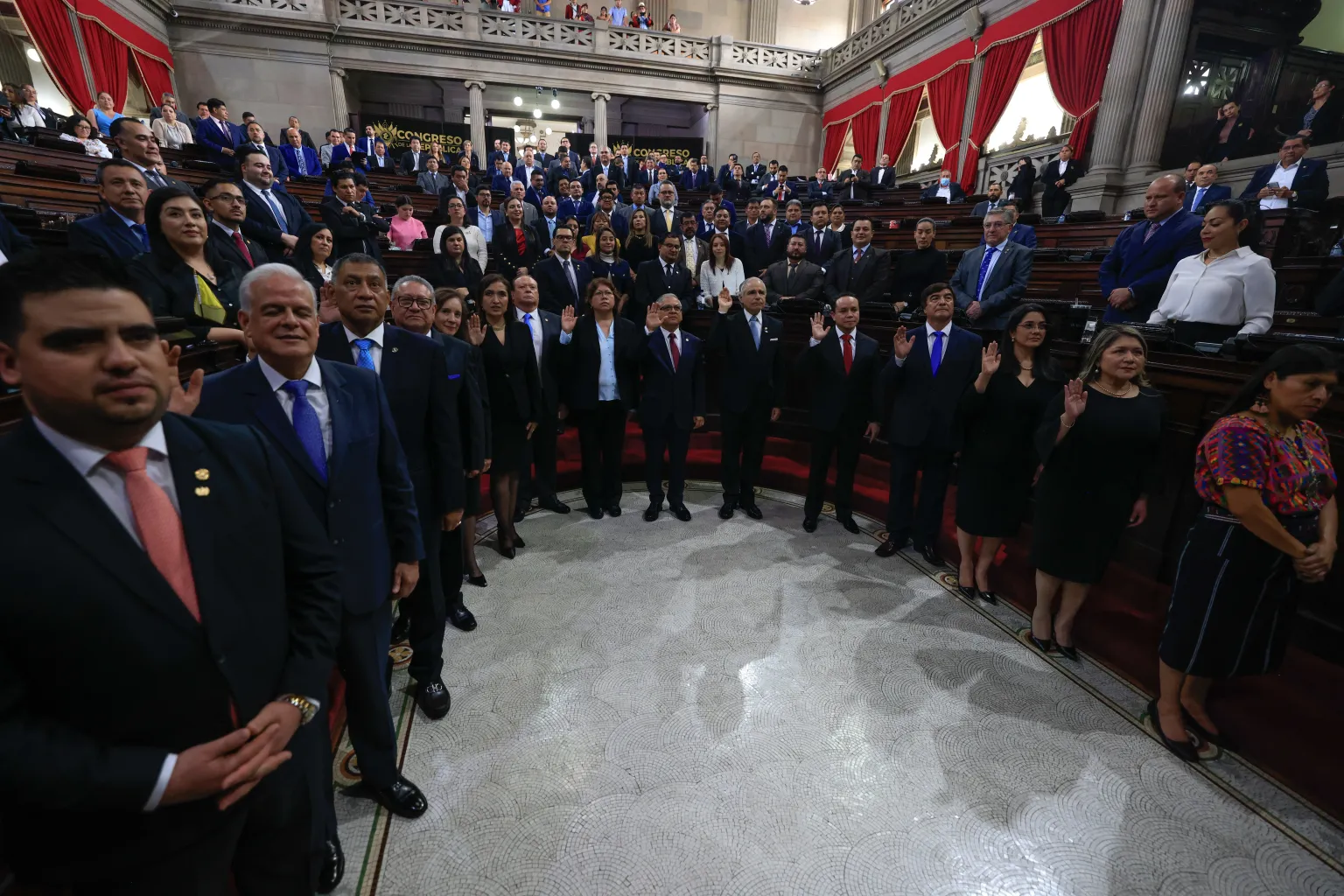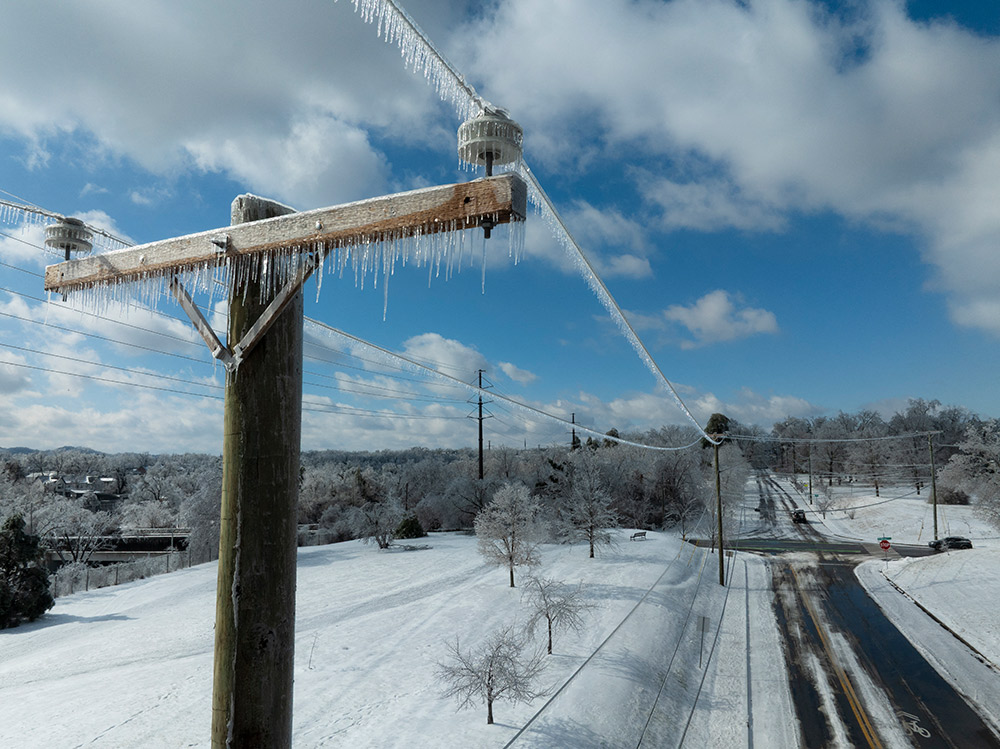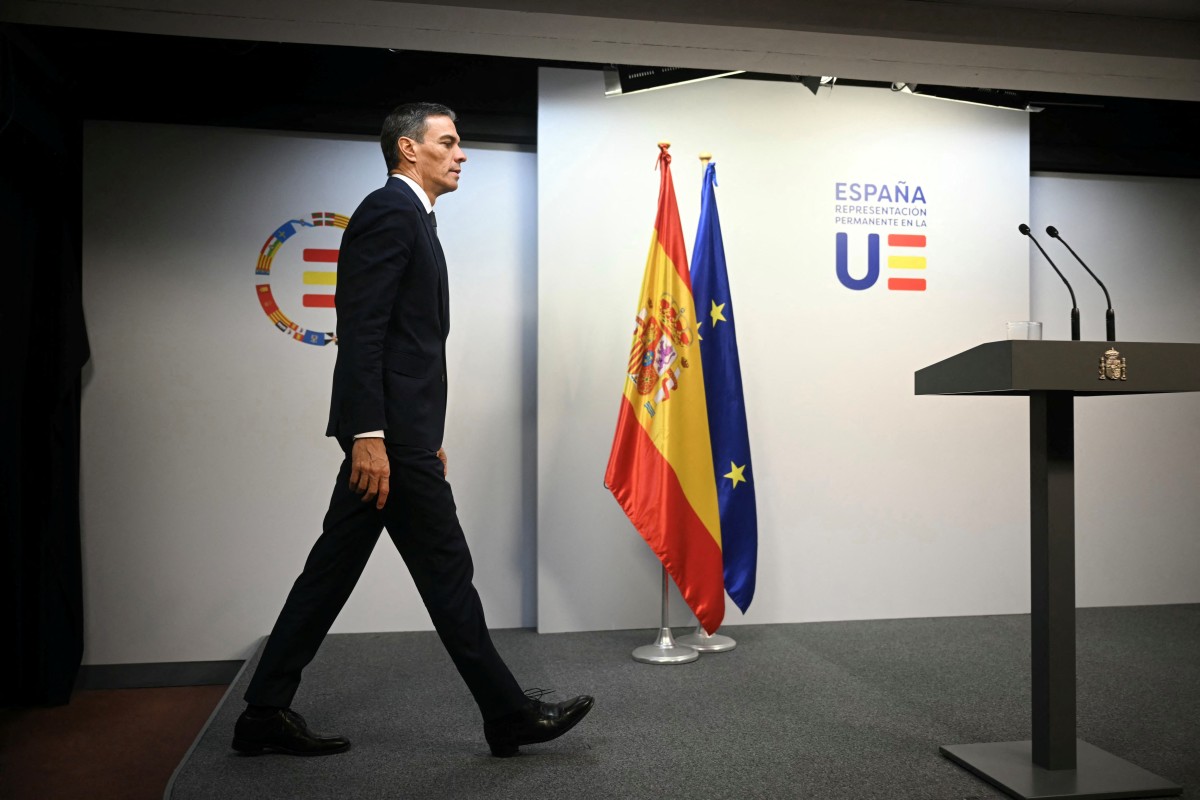International
Guatemala concludes key election of the 13 members of the Supreme Court for the next five years

The deputies of the Guatemalan Congress elected this Thursday the new 13 members of the Supreme Court of Justice (CSJ) for the period 2024-2029, a transcendental designation for the fight against corruption in the Central American country.
The Guatemalan congressmen reached the necessary consensus to elect the new members of the Supreme Court 10 days before the deadline established in the law to define the substitutes of the current magistrates expired.
“Congress has made its decision and chosen the new magistrates of the Supreme Court of Justice. Each deputy must take responsibility for his vote,” said the president of Guatemala, Bernardo Arévalo de León, in a message on the social network X after concluding the election.
Regain confidence in justice
The president recalled that “in the hands of the new CSJ is to fulfill the commitment that the people of Guatemala demand: to recover confidence in justice, respect for human rights and the frontal fight against impunity.”
“Beyond speculation, we need to see his vocation for justice in concrete facts. Never again courts that are not at the service of democracy, the rule of law and the construction of a better future,” he concluded.
Among the elected candidates stands out the re-election of three current magistrates of the Supreme Court of Justice, headed by Gustavo Adolfo Morales Duarte, who in 2020 accused himself of participating in the rigging of the election of courts that year.
When the election of the magistrates ended, opposition deputies, such as Allan Rodríguez, with complaints of corruption, celebrated with applause and shouts the election of the magistrates.
“Despite the fact that the ruling party allied itself with organized crime, that yesterday they distributed money, that there was a list of vetoed by the embassy, despite the fact that there were pressures against deputies (…), today Guatemala won,” Rodríguez, who did not prove his accusations, told the press.
According to the deputy, it is a “balanced Supreme Court, not all with the same ideology, but it doesn’t matter, it’s professional people, who have demonstrated their ability, many of them magistrates with experience.”
The new magistrates of the Supreme Court of Guatemala
The new Supreme Court magistrates are: Carlos Lucero Paz, Claudia Paredes Castañeda, Gustavo Morales Duarte, Jenny Alvarado Tení, Igmaín García Pimentel, Flor Gálvez Barrios, Carlos Contreras Valenzuela, Flor García Villatoro, Clemen Juárez Midence, Teodulo Cifuentes Maldonado, Estuardo Cardenas, Luis Conrado Campos and René Girón Palacios.
The process of electing magistrates of the Guatemalan Supreme Court has been under the international magnifying glass, of entities such as the Organization of American States (OAS), due to the current deterioration of the country’s judicial system, reflected in cases of political persecution against journalists, prosecutors and activists.
According to the OAS, as well as international organizations such as Impunity Watch or Human Rights Watch (HRW), this Supreme Court election process was vital for “the rescue of Guatemala’s justice system.”
Members of the official bench, consulted by EFE during the vote, indicated that the election ended with “questionable” candidates elected and with others without precedents that this faction supported them for their integration.
Between 2014 and 2019, investigations were carried out on the rigging of court elections through the intervention of political operators, such as former ministers and presidential candidates who sought to place their relatives in these positions.
International
Winter Storm Fern Leaves 30 Dead and Over One Million Without Power Across the U.S.

The massive winter storm Fern, bringing polar temperatures, battered large portions of the United States for a third consecutive day on Monday, leaving at least 30 people dead, more than one million households without electricity, and thousands of flights grounded.
In the Great Lakes region, residents awoke to extreme cold, with temperatures dropping below -20°C. Forecasts indicate that conditions are expected to worsen in the coming days as an Arctic air mass moves south, particularly across the northern Great Plains and other central regions, where wind chills could plunge to -45°C, temperatures capable of causing frostbite within minutes.
Across the country, heavy snowfall exceeding 30 centimeters in roughly 20 states triggered widespread power outages. According to PowerOutage.com, nearly 800,000 customers remained without electricity on Monday morning, most of them in the southern United States.
In Tennessee, where ice brought down power lines, approximately 250,000 customers were still without power. Outages also affected more than 150,000 customers in Mississippi and over 100,000 in Louisiana, as utility crews struggled to restore service amid dangerous conditions.
International
Spain approves plan to regularize up to 500,000 migrants in Historic Shift

In November 2024, Spanish Prime Minister Pedro Sánchez announced a reform of the country’s immigration regulations aimed at regularizing 300,000 migrants per year over a three-year period, in an effort to counter population aging in a country where births have fallen by 25.6% since 2014, according to official data.
Going against the trend in much of Europe, Spain’s left-wing government has now approved an exceptional migrant regularization plan that could benefit up to 500,000 people, most of them from Latin America.
The measure will allow the regularization of around “half a million people” who have been living in Spain for at least five months, arrived before December 31, 2025, and have no criminal record, Migration Minister Elma Saiz explained on public television.
The plan, approved on Tuesday by the Council of Ministers, establishes that applications will be processed between April and June 30, enabling beneficiaries to work in any sector and anywhere in the country, Saiz said.
“Today is a historic day for our country. We are strengthening a migration model based on human rights, integration, and one that is compatible with economic growth and social cohesion,” the minister later stated at a press conference.
The socialist government of Pedro Sánchez stands out within the European Union for its migration policy, contrasting with the tightening of immigration measures across much of the bloc amid pressure from far-right movements.
Central America
Honduras swears in conservative president Asfura after disputed election

Conservative politician Nasry Asfura assumed the presidency of Honduras on Tuesday with an agenda closely aligned with the United States, a shift that could strain the country’s relationship with China as he seeks to confront the economic and security challenges facing the poorest and most violent nation in Central America.
Asfura’s rise to power, backed by U.S. President Donald Trump, marks the end of four years of left-wing rule and secures Trump another regional ally amid the advance of conservative governments in Chile, Bolivia, Peru, and Argentina.
The 67-year-old former mayor and construction businessman was sworn in during an austere ceremony at the National Congress, following a tightly contested election marred by opposition allegations of fraud and Trump’s threat to cut U.S. aid if his preferred candidate did not prevail.
Grateful for Washington’s support, Asfura—who is of Palestinian descent—traveled to the United States to meet with Secretary of State Marco Rubio, before visiting Israeli Prime Minister Benjamin Netanyahu.
“We need to strengthen relations with our most important trading partner,” Asfura said after being declared the winner of the November 30 election by a narrow margin, following a tense vote count that lasted just over three weeks.
-

 Central America4 days ago
Central America4 days agoGuatemala’s president rules out negotiations with inmates after prison riots
-

 Central America1 day ago
Central America1 day agoGuatemala seizes over a ton of cocaine hidden in flour at Pacific port
-

 International3 days ago
International3 days agoTrump-Era Defense Plan Prioritizes Border Security and Scales Back Global Commitments
-

 Internacionales4 days ago
Internacionales4 days agoMajor winter storm threatens “catastrophic” ice and snow across much of the U.S.
-

 International3 days ago
International3 days agoBogotá and Quito Seek Dialogue After Tariffs and Power Cut Escalate Tensions
-

 International4 days ago
International4 days agoGuatemala considers sending high-risk gang members to military prisons
-

 International2 days ago
International2 days agoDelcy Rodríguez seeks political agreements after Maduro’s ouster
-

 International1 day ago
International1 day agoHistoric snowstorm paralyzes Toronto after 60 centimeters of snow
-

 International1 day ago
International1 day agoSpain’s irregular migrant population rises to 840,000, study finds
-

 International2 days ago
International2 days agoFederal immigration agents kill man in Minneapolis, sparking protests and outrage
-

 International4 days ago
International4 days agoRights group says over 5,000 killed in Iran protests, mostly civilians
-

 Central America3 hours ago
Central America3 hours agoGuatemala Police Arrest Prison Guard Caught in the Act of Extortion
-

 International1 day ago
International1 day agoRights group says nearly 6,000 killed in Iran protest crackdown
-

 International1 day ago
International1 day agoVenezuela frees at least 80 political prisoners, NGO says
-

 International1 day ago
International1 day agoEU launches new probe into X over AI-generated fake nude images
-

 International4 hours ago
International4 hours agoDoomsday clock moves to 85 seconds before midnight amid rising global risks
-

 Sin categoría3 hours ago
Sin categoría3 hours agoEight Killed in Series of Armed Attacks in Ecuador’s Manabí Province
-

 Central America4 hours ago
Central America4 hours agoHonduras swears in conservative president Asfura after disputed election
-

 International4 hours ago
International4 hours agoSpain approves plan to regularize up to 500,000 migrants in Historic Shift
-

 Central America4 hours ago
Central America4 hours agoBukele leads public trust rankings as UCA survey highlights gains in security
-

 International4 hours ago
International4 hours agoWinter Storm Fern Leaves 30 Dead and Over One Million Without Power Across the U.S.
-

 Sin categoría4 hours ago
Sin categoría4 hours agoEl Salvador Launches Fourth Year of Ocean Mission to Protect Marine Ecosystems
-

 International1 day ago
International1 day agoSevere winter storm grips U.S., leaves multiple dead as extreme cold persists
-

 International1 day ago
International1 day agoFrance debates ban on social media for children under 15


























